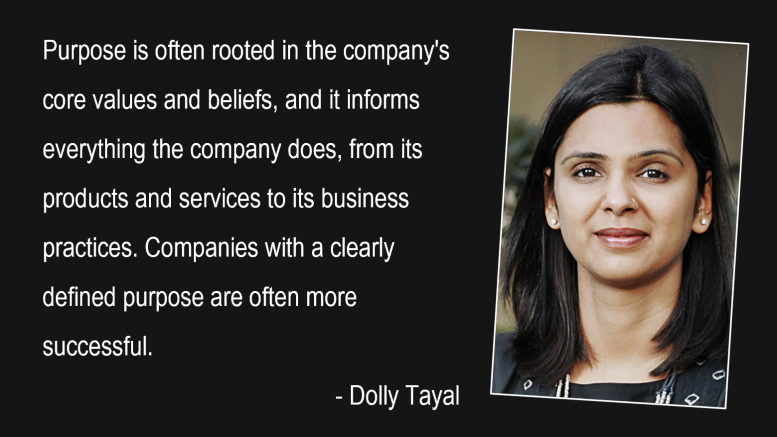CSR, cause marketing, movement marketing—brands use these and other terms interchangeably to talk about their community-centric initiatives.
Purpose. Suddenly everywhere, usually misunderstood. What does purpose really mean? Is every ‘good’ act an example of it? How is it different from CSR, cause marketing and other related actions? Several brands today are working hard to do their bit for the community. In fact, the only silver lining of the pandemic was that it shook us all and made us look beyond our immediate needs to the needs of the larger community around us. But there is some confusion about what purpose is and isn’t. It is important to tell the difference, not just because there are mandates and compliances to follow, but so that you can help your brand stand out with authenticity and real, measurable impact.
What is purpose?
First off, purpose is not just about altruism but also a strong business need. It is the ‘why’ of a business, a company’s reason for being beyond just making profits. Purpose is often rooted in the company’s core values and beliefs, and it informs everything the company does, from its products and services to its business practices. Companies with a clearly defined purpose are often more successful because it helps them align all their stakeholders towards one common goal and strategy. Take the example of Coca Cola and their simple purpose – Refresh the World. Make a Difference. This guides everything, from their products to their business practices, to their people and community initiatives. And that is how organisations and brands should really live their purpose.
Purpose = ESG, right?
Wrong. ESG, or Environment, Social and Governance are areas where organisations are now measured beyond just financial performance. In several countries, including India, companies are mandated to deliver and disclose their ESG commitments. In India, for instance, the Securities and Exchange Board of India (SEBI) has put forth the Business Responsibility and Sustainability Report (BRSR) framework that guides organisations on the parameters they need to deliver on. ESG can be driven by purpose but it isn’t right to use ESG and purpose interchangeably.
So then CSR is Purpose?
Wrong again. CSR is largely focused on supporting the community that a company functions in. Purpose goes beyond that to cover all stakeholders of a company, including, but not limited to the community. For many companies CSR is about compensating for issues created by core business activity while purpose is seen as creating positive effects from core businesses activity. Typically, CSR looks backwards, reporting on what a business has done to contribute to society. On the other hand, purpose looks forward. Like ESG, CSR also follows a mandate in India. Under the Companies Act 2013, companies of a certain turnover and profitability have to spend 2% of their average net profit for the preceding three years on CSR.
Cause and Movement Marketing
Movement Marketing involves aligning a brand with a social or cultural movement. Examples include Nike’s campaign around NFL player Colin Kaepernick who took the knee during the American national anthem in support of the Black Lives Matter movement. An example closer to shore is Tata Tea’s ‘Jaago Re’ campaign that encouraged raising voter awareness before elections. Movement marketing aims to build brand affinity and loyalty by tapping into consumers’ passions and values. The campaigns often involve creating content that encourages them to act.
Cause marketing, on the other hand, involves a company partnering with a non-profit organisation or cause to promote its products or services. It is usually a for-profit initiative, though often includes donating a portion of profits to the cause or encouraging consumers to donate.
Though all these terms are about promoting social and environmental sustainability by businesses, they differ in their focus and approach. Each approach has its benefits and challenges. Purpose can help a company connect with consumers on a deeper level and differentiate itself from competitors, but it can also be challenging to define and communicate effectively. ESG and CSR come with the onerous task of compliance and reporting. Movement marketing can help a company build brand affinity and loyalty, but it can backfire if not done authentically. Similarly, cause marketing can help a company support a cause it cares about and build its reputation, but it can also be seen as opportunistic if not done sincerely.
In the rapidly changing world that organisations today operate in, where their stakeholders’ behaviours are in constant flux, purpose can be a North Star. CSR, ESG, and all the others can feed into it, helping to bring it alive for different stakeholders. Purpose sits above everything else.
The views and opinions published here belong to the author and do not necessarily reflect the views and opinions of the publisher.



Be the first to comment on "Is it really purpose?"